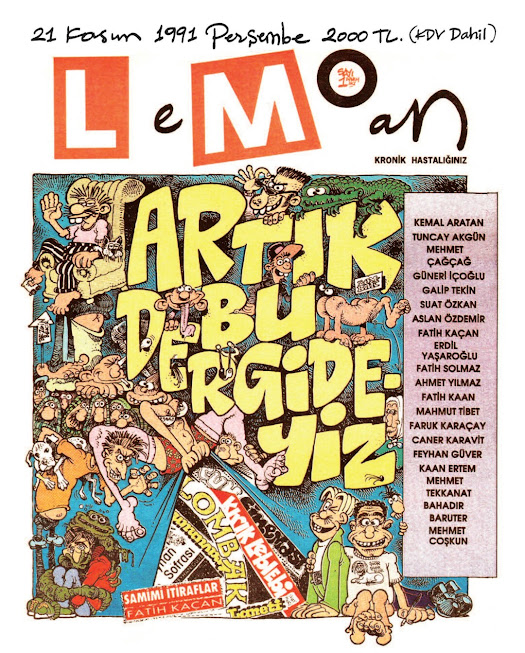In an escalating controversy that has gripped Turkey, four staff members of the satirical magazine LeMan were remanded in custody on Wednesday, accused of insulting religious values through a cartoon perceived as depicting Prophet Muhammad. The arrests stem from a drawing in the magazine's June 26 edition, which showed two figures interpreted as religious prophets in a war-torn setting, sparking widespread outrage and protests. The detained individuals include cartoonist Doğan Pehlevan, graphic artist C. O., editor Z.A., and institution manager A.Y. Adalet Bakanı Yılmaz Tunç confirmed the detentions, emphasizing the seriousness of the allegations.
According to T24, the cartoon, which depicted figures resembling Prophet Muhammad and Prophet Moses exchanging greetings amid bombings, was criticized for allegedly promoting hate and inciting division. Prosecutors argued that the image fueled public unrest, leading to demonstrations where groups stormed LeMan's office in Istanbul's Beyoğlu district, breaking doors and targeting staff online. T24 reported that the cartoon was intended as a commentary on conflicts like those in Gaza, but it was misconstrued, resulting in charges of "publicly humiliating religious values" under Turkish law.
In his police statement, cartoonist Pehlevan defended the work, stating it aimed to highlight the futility of war and the loss of ordinary lives, not to mock religion. He explained that the names "Muhammad" and "Moses" were chosen as standard identifiers for people affected by conflicts, such as Israeli bombings in Palestine, and denied any intent to depict prophets. "The first rule I learned in this profession is to avoid religion and never mock it," Pehlevan said, adding that the cartoon's message was one of peace and unity.
The incident has intensified scrutiny on LeMan, with authorities launching a financial investigation to probe potential foreign funding that may have influenced the content. İstanbul Cumhuriyet Başsavcılığı announced the probe, examining whether the magazine received support from abroad to incite unrest. Protests erupted shortly after the cartoon went viral, with social media calls leading to violent confrontations, including an attack on the magazine's headquarters. LeMan issued a statement clarifying that the figure was meant to represent a generic Muslim victim, not Prophet Muhammad, and apologized for any unintended offense while condemning provocateurs.
As the investigation continues, with arrest warrants issued for two additional suspects abroad, the case underscores tensions around freedom of expression and religious sensitivity in Turkey. Adalet Bakanı Tunç assured that the probe would be thorough, amid calls for calm from various quarters. This episode highlights ongoing debates over satire's boundaries in a polarized society, with LeMan's history of critical covers on issues like the Mavi Marmara incident adding complexity to the narrative.
